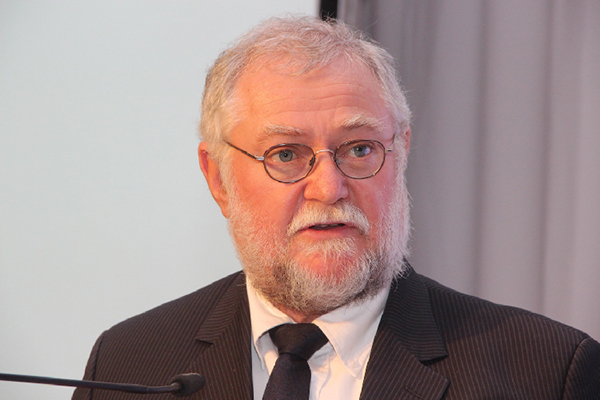Otniel Hembapu
After decades of enjoying a monopoly in the local meat processing sector, agriculture minister Calle Schlettwein believes it is high time for the Meat Corporation of Namibia to re-strategise and reposition itself as a modern entity to counter escalating competition.
With more input and influence from private enterprises such as Beefcor Meat Suppliers and newcomer Savanna Beef Processors, Schlettwein is convinced it can no longer be business as usual for Meatco and says current circumstances calls for the State-owned entity to urgently revisit its strategy and outlook.
Schlettwein was speaking at the ministry’s annual week-long planning workshop held at Swakopmund yesterday, where he was joined by the ministry’s senior officials and various stakeholders from the meat processing and marketing sector.
“Competing is getting tough locally and that shows Meatco’s decades of monopoly has ended and now things need to be done differently. Farmers must benefit from Meatco and efficient ways of doing business must be fast-tracked. At one point, Meatco was offering good prices to farmers but they always paid the farmers late and that delay in payments caused problems in the relationship. So, new and effective ways of doing business will be the way forward,” he said.
In a recent organisational review report compiled by Ombu Capital consultancy, it was revealed that Meatco slaughters an average of 2 250 animals per month. This is a far cry from its targets of 5 000 to 6 000 per month.
The current low-slung slaughtering capacity is expected to push Meatco further into monthly operating losses of around N$22 million, the report stated.
For Meatco to reach its desired levels of output, Ombu Capital recommended that additional funding in excess of N$193 million would be needed.
Besides the devastating droughts of 2015 and 2019, Meatco’s operations have also been severely impacted by rising producer prices and high-fixed overhead costs. It is also believed that Meatco’s market share has declined from 48% in 2015 to 16% as of late last year.
With Meatco already being a concern for government, Schlettwein also shared at yesterday’s gathering that a decision has been made to relook into the entity’s governance and operational structure, as it does not complement the envisaged future of the organisation.
“We are prepared to make tough decisions around Meatco, because the current structure is just not working and not helping the operations. We need a structure that will work for the future of Meatco and that will position it as an entity working for our local farmers and the sector. Even the classification of Meatco as a commercial entity under the new Public Enterprises Governance Act is wrong because Meatco is far from being a commercial entity. So, there is a lot to be done on Meatco and we are prepared to do the necessary work,” the minister stated.
“Meatco remains a very important asset to government and its role in improving the lives of our farmers and livestock industry equally remains vital. We should not entirely condemn Meatco and wish it away, because it is an important arm of government and it has a role to play in our developmental agenda. We should rather come up with new marketing strategies, improved infrastructure and modernised measures around our animal healthcare systems and so forth,” he said.
The minister further stressed that effective management of the green schemes is a key lever for food security and food self-sufficiency, advising the ministry urgently finalises and implements new lease agreements where awards are made to enable timely injection of private capital to wean schemes off the government budget.
“The feasibility study for the Neckartal Irrigation Project should also be extended to include community consultation on the appropriate model for the green scheme which optimises local participation options. Equally, our interventions on the effective veterinary barrier should go beyond conducting the feasibility study to include immediate steps to nullify the effects of the veterinary cordon fence by starting with the compartmentalisation of veterinary zones, commencing with the Kunene region and Mangetti areas,” he said.
Schlettwein also stressed recurring drought warrants the prioritisation of responsive actions to address human and livestock needs.
– ohembapu@nepc.com.na


